What is Neuropathy?
Neuropathy refers to damage or dysfunction affecting the peripheral nerves, the vast network of nerves that carry signals between your brain, spinal cord, and the rest of your body. When these nerves become damaged, they can’t properly transmit sensory information, motor commands, or autonomic functions.
The result is a wide range of uncomfortable and sometimes debilitating symptoms that most commonly affect the feet and legs, though neuropathies can impact hands, arms, and other areas of the body as well. Peripheral neuropathy is one of the most common neurological disorders, affecting millions of Americans and becoming increasingly prevalent with age.
If you’re experiencing neuropathy, you know the symptoms extend far beyond simple discomfort. Burning pain that keeps you awake at night, the numbness that makes it difficult to feel the ground beneath your feet, tingling sensations that never seem to stop: these aren’t just minor annoyances. Many of our patients describe feeling like they’re walking on broken glass, wearing invisible socks, or experiencing electric shocks shooting through their limbs.
Our goal is not just to manage your neuropathy but to help you regain confidence, mobility, and the ability to live life on your terms.
What Causes Neuropathy?

Understanding what causes neuropathy is essential for developing your treatment plan, though in some cases the exact cause remains unclear (a condition called idiopathic neuropathy).
Diabetes is the most common culprit, with high blood sugar levels gradually damaging nerves throughout the body, particularly in the legs and feet, a condition known as diabetic neuropathy or foot neuropathy. Other metabolic disorders like thyroid disease and vitamin deficiencies (especially B vitamins) can also lead to nerve damage over time. Additionally, autoimmune diseases such as rheumatoid arthritis, lupus, and Guillain-Barré syndrome cause the immune system to mistakenly attack nerve tissue.
Many neuropathies develop from physical trauma, repetitive stress injuries, or nerve compression conditions like carpal tunnel syndrome and sciatica. Certain infections including Lyme disease, shingles, HIV, and hepatitis C can damage peripheral nerves as well. Exposure to toxins, whether from alcohol abuse, chemotherapy drugs, heavy metals, or certain medications, also represents a significant cause of nerve damage. Inherited disorders like Charcot-Marie-Tooth disease can also result in progressive neuropathy symptoms that run in families.
Pinpointing the underlying cause allows our team of pain management specialists to create a targeted treatment strategy that not only addresses your symptoms but also works to prevent further nerve deterioration.
How We Treat Neuropathy in North Dallas
Pain Management of North Dallas offers comprehensive treatment for neuropathy in legs and feet, as well as other affected areas, using a multi-modal approach tailored to your specific condition and symptoms. Your treatment plan may include medications specifically designed to target nerve pain, such as anticonvulsants, antidepressants, or topical agents that provide relief without the risks associated with long-term opioid use. We also utilize advanced interventional procedures including nerve blocks, spinal cord stimulation, and peripheral nerve stimulation to interrupt pain signals and provide longer-lasting relief for patients with chronic or severe neuropathies.
Every patient’s neuropathy condition is unique, which is why we emphasize personalized care rather than one-size-fits-all solutions. Some patients respond beautifully to conservative treatments, while others benefit from more advanced interventions. We regularly monitor your progress and adjust your treatment plan as needed, ensuring you receive the most effective therapies for your neuropathy symptoms.
With convenient locations across Frisco, Plano, McKinney, and Dallas, accessing expert neuropathy care has never been easier. Request your appointment at Pain Management of North Dallas and get relief now.
Frequently Asked Questions About Neuropathy
Can neuropathy be reversed or cured?
Whether neuropathy can be reversed depends on the underlying cause and how much nerve damage has occurred. In cases where the cause is identified and addressed early—such as correcting a vitamin deficiency or managing blood sugar levels—some nerve function may recover over time, though this process is typically slow. However, once significant nerve damage occurs, it’s often permanent. That said, even when nerve damage can’t be fully reversed, many patients experience substantial symptom relief and improved function through appropriate treatment. Our focus is on stopping progression, maximizing your remaining nerve function, and helping you live more comfortably.
How do I know if my symptoms are caused by neuropathy or something else?
Neuropathy symptoms can overlap with other conditions, which is why proper diagnosis is crucial. Classic signs include numbness, tingling, burning pain, or weakness that typically starts in the toes or fingers and gradually spreads upward in a “stocking-glove” pattern. The sensations are often worse at night and may be accompanied by heightened sensitivity to touch or temperature changes. During your evaluation at Pain Management of North Dallas, we perform a comprehensive assessment including neurological examination and potentially nerve conduction studies to confirm neuropathy and rule out other conditions.
Will I need to take medication for the rest of my life?
Not necessarily. Treatment duration varies significantly depending on your condition’s cause, severity, and how well you respond to initial therapies. Some patients require ongoing medication management for chronic neuropathies, particularly those related to diabetes or other progressive conditions. Others may gradually reduce medications as their symptoms improve through lifestyle changes, treatment of underlying causes, or interventional procedures. We work collaboratively with you to find the minimum effective treatment that controls your symptoms while minimizing side effects and medication dependence.
Can neuropathy affect more than just my feet and hands?
Absolutely. While peripheral neuropathy most commonly affects the feet and hands first, it can impact nerves throughout your body. Autonomic neuropathy affects involuntary functions, potentially causing digestive issues, bladder problems, blood pressure irregularities, or heart rate changes. Motor neuropathy impacts muscles, leading to weakness, cramps, or loss of coordination. Some patients develop focal neuropathy affecting specific nerves, such as those controlling eye movement or facial muscles. Our comprehensive evaluation identifies all areas of nerve involvement so we can address the full scope of your condition.

















